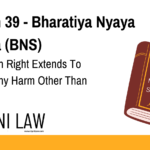Court Denies Plea to Quash FIR, Familial Ties Don’t Rule Out Promise Of Marriage
The Delhi High Court has refused to quash an FIR lodged under Section 376 IPC, citing the significance of the relationship between the parties through familial ties in determining the validity of a promise of marriage. Justice Chandra Dhari Singh presided over the case, involving a petition filed by a man seeking to quash an FIR filed by his distant relative.
Allegations of False Promise of Marriage
According to the FIR, the petitioner and the prosecutrix are distant relatives. The prosecutrix alleged that the petitioner promised marriage on several occasions, leading her to consent to physical relations based on these assurances.
The FIR further claims that in November 2022, the petitioner left the prosecutrix at her sister’s house under the pretense of seeking familial approval for marriage. He later changed his phone number and ceased communication. In response, the prosecutrix filed the FIR in February 2023.
Petitioner’s Defense and Prosecution’s Argument
The petitioner argued that their distant familial relationship made marriage legally impossible, negating any promise of marriage. However, the prosecutrix contended that their relationship did not fall within the prohibited degrees under Hindu law or Sapinda relations, thus allowing for a lawful marriage.
Court’s Reference to Precedents
Justice Singh referenced the Supreme Court’s ruling in Pramod Suryabhan Pawar v. State of Maharashtra (2019). The Court noted that determining whether the accused had an honest intention to marry at the time of making the promise is essential. The connection between the false promise and the woman’s decision to engage in sexual acts must also be evaluated.
Analysis of Relationship and Consent
The Delhi High Court highlighted that the nature of the relationship is crucial in assessing whether a promise of marriage existed. While the petitioner’s claim that marriage was impossible holds relevance, it does not entirely rule out an implied or explicit promise of marriage.
Justice Singh remarked, “The petitioner, being of sound mind and aware of the familial relationship, still chose to engage in physical relations. This raises questions about his intent and the consequences of his actions.”
Addressing the Delay in Filing the FIR
The petitioner argued that the delay in filing the FIR, nearly four years after the alleged incidents, casts doubt on the allegations. The court, however, noted that delays in cases involving sexual offenses do not automatically negate the claims.
The prosecutrix explained the delay as stemming from her belief in their 12-year relationship and the hope that the petitioner would return. She filed the FIR after learning about his plans to marry another woman. The court found this explanation convincing and emphasized the need to evaluate each case on its own merits.
Court’s Final Decision
The Delhi High Court concluded that the allegations warrant a trial under Section 376 IPC. The court refused to quash the FIR and dismissed the petition, reinforcing the importance of examining relationship dynamics in cases of alleged false promises of marriage.








